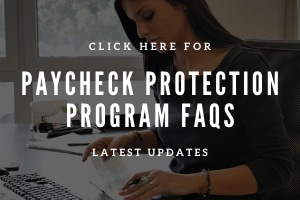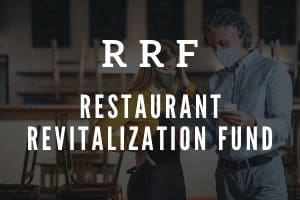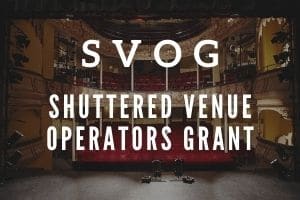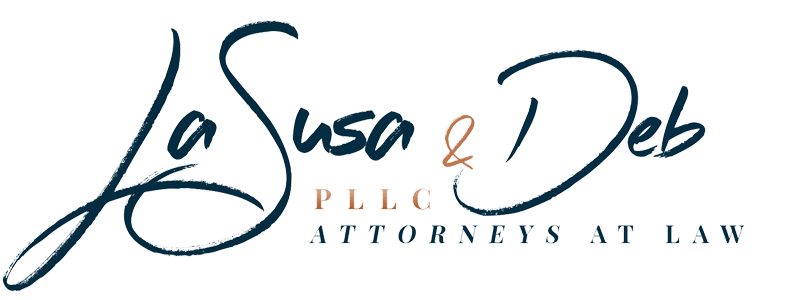The Restaurant Revitalization Fund (RRF) is one of the newest programs for small businesses, restaurants, food trucks, bars, pubs, and other restaurant-type businesses that have been particularly hit hard by COVID-19.
This program is designed to give them the extra support that they need. If this program is successful, we expect that we might see similar programs for the travel and hospitality industry.
This program is new and subject to change at any moment. Be wary of anyone saying they have experience with this program, that they can guarantee or promise a result, or are charging a large contingency fee.
What does the RRF Program offer?
- An eligible entity may receive a tax-free federal grant equal to the amount of its pandemic-related revenue loss. This is believed to be calculated by subtracting its 2020 gross receipts from its 2019 gross receipts. (Taken from restaurant.org on 3/23/2021 as of yet neither the SBA nor the Treasury Department has set up any guidance resource pages as far as we know.)
- NOTE: The grant amount will be adjusted for the fund amount received through PPP1 and PPP2 programs.
- What if you were in business for all of 2019?
- If the entity is not in operation for the entirety of 2019, then it is believed the calculation will be the difference between 12 times the average monthly gross receipts for 2019 and the average monthly gross receipts in 2020 (or a similar formula from SBA). **
- If the entity is not in operation until 2020, it believed you can still receive a grant equal to the amount of “eligible expenses” subtracted by its gross receipts received (or a similar formula from SBA). **
** Taken from restaurant.org on 3/23/2021 as of yet neither the SBA nor the Treasury Department has set up any guidance resource pages as far as we know.
What do you need to apply?
Get started NOW! Even though this program isn’t taking applications yet we suggest that if you are interested, then you should start preparing now for your application.
- This program is so new that we don’t even know what the requirements are for it yet.
DEADLINES: Familiarize yourself with the current forecast of deadlines so that you can have your materials ready when the programs are open to taking applications for your business. This program has not launched and SBA has yet to provide any guidance. Industry groups are hopeful that the program will launch in May. As of now, that is just a rumor.
Who can apply?
This program is designed to target restaurant-style small businesses that have suffered the most under the pandemic.
Restaurant, food stand, food truck, food cart, caterer, saloon, inn, tavern, bar, lounge, brewpub, tasting room, taproom, licensed facility, or premise of a beverage alcohol producer where the public may taste, sample, or purchase products, or other similar places of business in which the public or patrons assemble for the primary purpose of being served food or drink PROVIDED THAT as of March 13, 2020, owns or operates (together with any “Affiliated Business”) more than 20 locations, regardless of whether those locations do business under the same or multiple names.
It is expected that entities will be ineligible if:
- Operated by a state or local government;
- Have a pending application for or has received a grant under SBA’s Shuttered Venue Operators Grant Program; or
- Is majority-owned or controlled by a publicly traded company.
What can you use it for?
One of the major advantages of these programs is the flexibility in terms of what businesses may or may not use the funds for.
- Payments of principal and interest on any mortgage obligation (which shall not include any prepayment of principal on a mortgage obligation).
- Rent payments, including rent under a lease agreement (which shall not include any prepayment of rent).
- Paid sick leave.
- Utilities.
- Maintenance expenses, including construction to accommodate outdoor seating; and walls, floors, deck surfaces, furniture, fixtures, and equipment.
- Suppliers, including protective equipment (PPE) and cleaning materials.
- Food and beverage expenses are within the scope of the normal business practice of the eligible entity before the covered period.
- Covered supplier costs.
- Operational expenses and other operational costs deemed to be essential to operations.
- Payroll costs, excluding:
- Qualified wages (as defined in subsection (c)(3) of section 2301 of the CARES Act) taken into account in determining the credit allowed under such section 2301; or
- Premiums are taken into account in determining the credit allowed under section 6432 of the Internal Revenue Code of 1986.
LaSusa & Deb, PLLC is here to be a resource for our clients and for the fellow members of our community. Do not hesitate to give us a call at 214-584-6505.
Get Updates on The CARES Act
For business owners and nonprofits, stay updated with information relating to The CARES Act and SBA Disaster Relief Loans.
Subscribe for Updates




